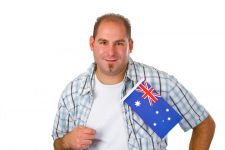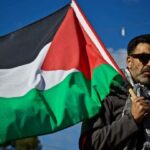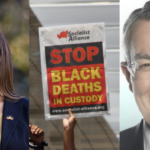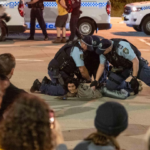Anti-Islam Rally a Fizzer

Last weekend marked the 10th anniversary of the Cronulla Riots – an incident which involved “a drug- and alcohol-fuelled group of approximately 5,000 mostly young people, draped in Australian flags, gather[ing] at Cronulla Beach and carr[ying] out vicious assaults on anyone of Middle Eastern appearance”, including women and children on public transport after the event.
The event is regarded by most Australians, and internationally, as a shameful stain on Australia’s history – but some extremist groups voiced support for a 10th anniversary ‘memorial’ rally to ‘celebrate’ the incident.
Following the tragic Paris terrorist attacks and other international atrocities, there has been a resurgence of support for far-right wing groups such as Reclaim Australia and the Party for Freedom – the latter group’s chairman Nicholas Folkes getting his ‘15 minutes of fame’ when he pledged to host a rally on Saturday.
But a Supreme Court decision put an end to his plans.
Supreme Court Bans ‘Memorial’ Event
The Party for Freedom had actively promoted the event on the internet, with an event page on the group’s website proclaiming:
‘Party for Freedom will be holding a memorial service, and invites you to attend. We ask you to invite your friends and family and reach out to Cronulla locals who were affected by the devastating and brutal cover-up perpetrated by the state and federal governments.’
The announcement sparked outrage from many Australians, with several groups campaigning for the event to be shut down. Eventually, the Sutherland Shire Council, the NSW Police Commissioner and Muslim community leader Jamil Rifi intervened, seeking court orders to prevent the event from going ahead.
On Friday, the NSW Supreme Court ruled against the Party for Freedom, banning Folkes from hosting the event for fears it could incite racial hatred. In a separate judgment, the Federal Court granted an application to prevent other groups or individuals from hosting the event.
In Court on Friday, Folkes gave an undertaking not to host the event and said that he would do everything necessary to inform his followers that the event was cancelled.
However, he told the Court that he wanted to hold a halal-free barbecue instead, saying: ‘As a citizen and as a free man of Australia, I have the right to go down there and throw a barbecue.’
He went on to tell the media outside court that the ruling was an attack on freedom of speech, saying:
‘This is censorship, this is sharia law in action…Where’s the freedom of speech?’
But Muslim leader Jamal Rifi pointed out that freedom of speech ends when inciting violence against others begins, stating: ‘We also have a right as a citizen of this country not to be insulted, not to be humiliated and not to be intimidated.’
Anti-Racism Activists Arrested
Despite the Court rulings, around 40 anti-Islam activists and over 100 anti-racism activists clashed at Cronulla Beach on Saturday.
Scores of riot police attempted to maintain peace at the event, turning anti-racism activists away from the anti-Islam group.
Members of the anti-Islam group roasted a pig at a halal-free barbecue. Despite members carrying anti-Islamic placards and chanting racist slogans early on in the event, not one was arrested for offensive language, offensive conduct or inciting violence – all of which were criminal offences available to police.
Meanwhile, two men from the anti-racism group were arrested – a 58-year-old man who was charged with offensive conduct, and a 25-year-old man who was alleged to have breached the peace.
Breach of the peace refers to situations where:
‘harm is actually done or is likely to be done to a person or in his presence to his property or a person is in fear of being so harmed through an assault, an affray, a riot, unlawful assembly or other disturbance.’
It is not technically an offence – rather it triggers the ability for police to exercise greater powers. For instance, section 9 of the Law Enforcement (Powers and Responsibilities) Act 2002 gives police the power to enter private property to prevent a breach of the peace.
There is also a wealth of case law which broadens these powers – for instance, the 1982 case of Albert v Lavin gives members of the public the power to perform a citizens’ arrest in order to prevent a breach of the peace.
Despite the arrests, Saturday’s gathering was a drastic improvement on the 2005 event, at which police laid 285 charges against 104 people.
But the problems were not over for Nick Folkes, who arrived home to find his tyres slashed.
Members of the anti-Islam group have pledged to chip in to buy him a new set.






